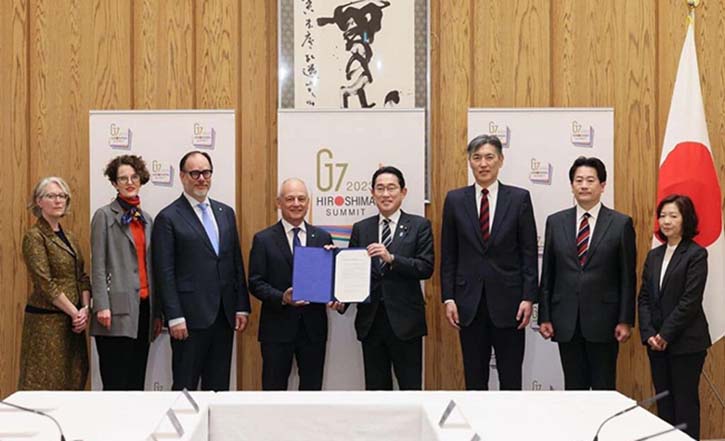The importance of strengthening the role of universities in fostering peace and security through engagement with governments was highlighted at a global meeting of more than 75 university leaders in Tokyo last week, convened by Keio University.
The message will be conveyed to political leaders at the upcoming Group of Seven (G7) Summit of the world’s major economies, which will be hosted by Japan in Hiroshima in May.
The push for an active peace role for higher education by the U7+ Alliance of university heads from five continents – which was set up to outline collective action on global challenges in coordination with G7 and other government leaders – takes on a special significance as global powers struggle to contain the ongoing war in Ukraine and amid rising diplomatic tensions between the West and China. Other ongoing conflicts such as the Syrian war also need urgent resolution.
More than 75 university leaders from 16 countries met at Keio University on 16-17 March calling on G7 leaders to invest in peace and security education at all levels. Universities should support research on peace and security issues, the universities’ statement known as the ‘Tokyo Statement’ on ‘universities as engines of innovation for peace and security’ said.
The statement adopted by the university presidents was delivered to Japanese Prime Minister Fumio Kishida on 15 March in his capacity as G7 host.
Academics pointed to the decision by Japan to hold the May G7 Summit in Hiroshima as bolstering the international message of peace. Hiroshima, along with Nagasaki, experienced the horror of atomic bombing in 1945 by Allied forces and now leads the call for the prohibition of nuclear weapons globally.
Academics defined the new era of peace and security education as seeking innovative research geared to meet emerging issues – a case in point is the addition of cybersecurity research to the agenda, aimed to reduce the risk of hackers disrupting governments.
Universities’ role in peace and security is much broader than diplomacy and defence, however. The Tokyo statement highlighted that “G7 governments should invest in education that fosters deeper cross-border and cross-cultural understanding by working with universities to enhance student mobility on a global scale by reducing visa and financial barriers”.
It also highlighted the importance of protecting academic freedom in conflict situations and the rise of autocratic governments.
Source: https://www.universityworldnews.com/post.php?story=2023032013025263

